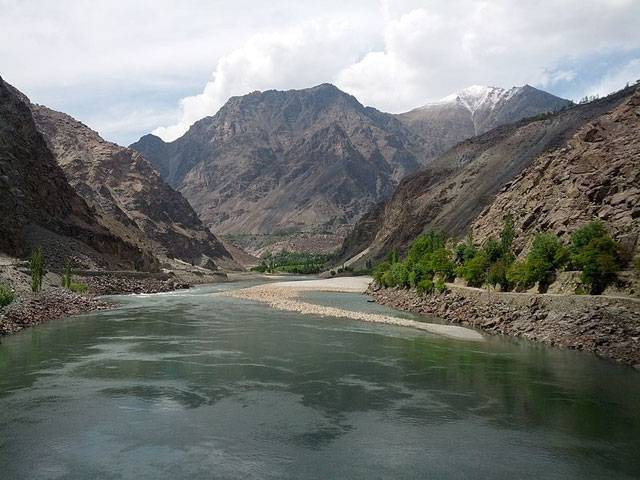Pakistan, India resume talks to bridge differences over Indus Waters Treaty
Delegations from Pakistan and India are attending the 113th Permanent Indus Commission (PIC) meeting

Delegations from Pakistan and India are attending the 113th Permanent Indus Commission meeting. PHOTO: EXPRESS/FILE
Delegations from Pakistan and India, led by their respective Indus waters commissioners are attending the 113th Permanent Indus Commission (PIC) meeting being held in Islamabad.
Delhi returns to the table after water war threats
A 10-member Indian delegation, led by India's Indus Water Commissioner P K Saxena, arrived on Sunday to take part in the meeting.
Speaking to media on Monday, Asif said the “resumption of talks over the IWT was in the interest of Pakistan, India and the entire region.”
The agenda of this year’s meeting includes deliberations on Pakal Dul, Lower Kalnai and Miyar hydroelectric plants designs, flood data supply by India and programme of tours of inspection and meetings by Pakistan and India to the sites of their interest in the Indus basin.
The meeting between the two neighbouring countries is taking place after a lacuna of almost two years. The IWT makes it mandatory for the two countries to hold talks at least once a year. According to an official statement issued on Sunday, the last IWT meeting was held in May 2015.
The long delay took place after Pakistan’s Commissioner had announced a failure of talks during the 111th PIC meeting in 2015. Pakistan had raised objections over the designs of three projects on Chenab it considered being built by India in violation of the 1960 IWT.
Indian prime minister reviews Indus Waters Treaty
“We want India to share designs of the three projects [hydroelectric plants] with Pakistan because it is our right to raise objections to the projects if they are damaging our interests,” he said while responding to a question.
He further added that delays had been witnessed in the past in the handling of the Kishanganga project. "When we [Pakistan] went to the court of arbitration our position was not as strong as it could have been if we had approached the court in a timely manner."
The minister added, however, that Pakistan has successfully defended its stand as per the IWT and, “Pakistan’s position on the Ratle project is very strong.”
Asif also announced in the press conference that the Neelum-Jhelum project would become operational in March 2018.
While India offered to continue meetings at the commission level, Pakistan could not afford delays in the resolution process as the construction of the two plants were continuing, added the official statement.
After a bilateral meeting between the Secretary Water and Power with the Indian Secretary for Water Resources, held in New Delhi in July 2016, both the disputed matters were referred for a third party resolution through the World Bank (WB).
Pakistan has been pursuing the matter of regular meetings of the Indus Water Commission with India to bring the other remaining issues under discussion.
Despite various media statements causing speculations, Pakistan showed restraint and kept making efforts to resume commission level talks.
According to the statement, the Government of Pakistan “appreciates the decision of the Indian government to resume regular talks and welcomes the Indian delegation to Islamabad.”
India to lose if it breaches water treaty: minister
Pakistan, it added, believed that a continuation of the purposeful talks would lead to resolution of the matters at the commission level, in accordance with the provisions of the IWT, which had been a symbol of peaceful management of trans-boundary water resources.
The statement added that Pakistan would continue its efforts to resolve the matters according to the provisions of the IWT and “expects that our goodwill will be reciprocated from the Indian side.”
Ahead of the meeting, an Indian official source told the Press Trust of India (PTI) that India is "always open" to discussing and resolving concerns Pakistan has over its projects under the IWT bilaterally but reiterated that there will be "no compromise" on India exploiting its due rights under the 57-year-old pact.



















COMMENTS
Comments are moderated and generally will be posted if they are on-topic and not abusive.
For more information, please see our Comments FAQ